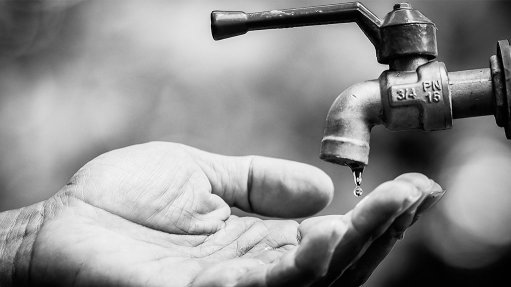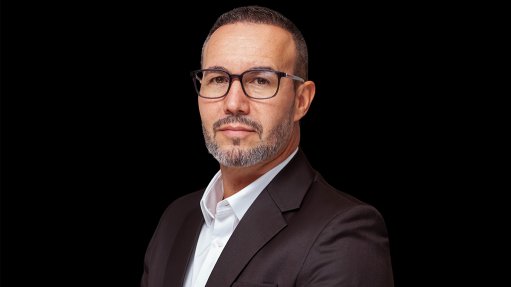Mining the DRC: after losing some battles, Tshisekedi is winning the war
In this opinion piece, Africa Risk Consulting’s Tara O’Connor and Fiona Grant assess the changes that are taking place in the Democratic Republic of Congo, which are bound to make businesses with interests in that country sit up and pay attention
Political transitions in the Democratic Republic of Congo (DRC) do not happen too often. When they do, they are invariably violent, and the consequences of external intervention or internal electoral manipulation and corruption. But now, just as copper prices shoot up, the DRC looks to be entering a fresh political transition phase. President Félix Tshisekedi has moved to consolidate his hold on power in a move that began in February and is likely to overlay the political and business atmosphere for the rest of the year.
Tshisekedi, son of veteran DRC politician Etienne Tshisekedi, inherited his father’s position as leader of the left-leaning Union pour la Démocratie et le Progrès Social (UDPS). He became President of the DRC on January 24, 2019, with the avowed intention of reducing corruption and improving governance in the country. His term started badly as the US, the UK and the United Nations Human Rights Council branded the polls that brought him to power as “deeply flawed and troubling”. Several journalists, analysts and observers read into the election power-sharing arrangement a deal cut between outgoing President Joseph Kabila and in-bound Tshisekedi. Power was divided between Tshisekedi and Kabila’s Front commun pour le Congo (FCC) party, which retained control of the Senate.
Nevertheless, that transition of power was the first peaceful, election-based handover in the DRC since 2001, when Kabila succeeded his father, Laurent-Désiré Kabila, eight days after his assassination on January 16, 2001. The transfer of power following an election is the only one in the DRC’s post- independence history!
Control of mining and mining futures is, and has been, at the heart of the power struggle between the two men and their followers. In February, a politically motivated reshuffle replaced the State-owned Gécamines’ secretary-general and other senior officials. Former adviser in the Prime Minister’s office Patrice Pungwe replaced Déogratias Ngele Masudi, an ally of Gécamines chairperson Albert Yuma, as secretary-general. Gecamines’ director-general and now Prime Minister Jean-Michel Sama Lukonde Kyenge said Pungwe’s appointment was part of a “revitalisation” of the company’s upper management. Tshisekedi originally nominated Lukonde as director-general in June 2020.
In appearance at least, it seems that Tshisekedi intends to break from the corrupt tradition established by the Kabila family, although it is way too early in the process to think it is anything more than a changing of the guard. Either way, Tshisekedi appears to be focused on rooting out and removing the Kabilas from their positions of political and financial strength. It is a transition that is likely to make businesses with interests in the DRC sit up and pay attention – especially those that have stapled their futures to the coattails of the ex-President and his family.
As the programme now approaches a tipping point, several businesses run the risk of exposure as Tshisekedi’s mission accelerates. The Kabila family have historically offered political cover to mining companies in exchange for hidden shareholdings, influence and financial gain. Tanganyika province, for instance, has served as a stronghold of the Kabila family. Zoé Kabila, a younger brother of former President Joseph Kabila, was – until May 6 – the governor of Tanganyika province, in the east of the DRC. Through Zoé Kabila’s former position, the Kabila family had effective control of State assets and public procurement processes in the region. Zoé Kabila was removed following a motion of censure signed by 13 members of the provincial assembly of Tanganyika, a significant victory for Tshisekedi.
Tshisekedi has yet to reverse the negative trend and perceptions of corruption in the DRC, despite his campaign promises. The DRC has slipped three places in nongovernmental organisation Transparency International’s Corruption Perceptions Index since 2012. Tshisekedi’s countercorruption drive comes shortly after the US reinstated sanctions that former president Donald Trump had lifted on infamous Israeli billionaire and mining magnate Dan Gertler. The US sanctioned Gertler in 2017, accusing him of pocketing $1.36-billion in revenues from underpriced mining assets sold to his offshore companies.
The clean-up, if it is indeed genuine, comes at a critical time for the DRC, as the world’s major economies determine that greening the global economy – replacing fossil fuel use with electric technology – is also the answer to post-Covid-19 economic recovery. A structural shortage of metals essential to this transition is set to increase as the world hurtles towards NetZero by 2050. But what is new, too, is the Joe Biden administration’s determination to crack down on offshore tax havens that hide so much mining-linked corruption. On June 3, the White House released a statement in which Biden promised that his administration would “take special aim at confronting corruption, which rots democracy from the inside” and “crack down on tax havens and illicit financing that contribute to income inequality, fund terrorism, and generate pernicious foreign influence”.
The US is a long-standing, if sometimes reluctant, partner to the DRC – in large part due to the DRC’s substantial copper and cobalt reserves. Meanwhile, the combination of a political shift in the DRC, renewed US attention and soaring copper prices give miners and other businesses new leverage. The cavalier concessionaire attitudes that characterised mining investment in the DRC in the first supercycle are now history. International business norms have changed, as has business culture. This time, businesses have the international political and legal leverage to push for positive change and support the Tshisekedi disruption.
Article Enquiry
Email Article
Save Article
Feedback
To advertise email advertising@creamermedia.co.za or click here
Announcements
What's On
Subscribe to improve your user experience...
Option 1 (equivalent of R125 a month):
Receive a weekly copy of Creamer Media's Engineering News & Mining Weekly magazine
(print copy for those in South Africa and e-magazine for those outside of South Africa)
Receive daily email newsletters
Access to full search results
Access archive of magazine back copies
Access to Projects in Progress
Access to ONE Research Report of your choice in PDF format
Option 2 (equivalent of R375 a month):
All benefits from Option 1
PLUS
Access to Creamer Media's Research Channel Africa for ALL Research Reports, in PDF format, on various industrial and mining sectors
including Electricity; Water; Energy Transition; Hydrogen; Roads, Rail and Ports; Coal; Gold; Platinum; Battery Metals; etc.
Already a subscriber?
Forgotten your password?
Receive weekly copy of Creamer Media's Engineering News & Mining Weekly magazine (print copy for those in South Africa and e-magazine for those outside of South Africa)
➕
Recieve daily email newsletters
➕
Access to full search results
➕
Access archive of magazine back copies
➕
Access to Projects in Progress
➕
Access to ONE Research Report of your choice in PDF format
RESEARCH CHANNEL AFRICA
R4500 (equivalent of R375 a month)
SUBSCRIBEAll benefits from Option 1
➕
Access to Creamer Media's Research Channel Africa for ALL Research Reports on various industrial and mining sectors, in PDF format, including on:
Electricity
➕
Water
➕
Energy Transition
➕
Hydrogen
➕
Roads, Rail and Ports
➕
Coal
➕
Gold
➕
Platinum
➕
Battery Metals
➕
etc.
Receive all benefits from Option 1 or Option 2 delivered to numerous people at your company
➕
Multiple User names and Passwords for simultaneous log-ins
➕
Intranet integration access to all in your organisation


















